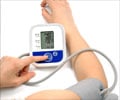In its First Report, WHO details the devastating consequences of hypertension and how to stop it.
- The World Health Organization (WHO) has issued its first-ever report on hypertension
- It has revealed that nearly 80% of individuals with high blood pressure worldwide lack adequate treatment
- In India, implementing effective blood pressure control measures could save at least 40 million lives by 2040
First WHO report details devastating impact of hypertension and ways to stop it
Go to source).
India's Battle Against Hypertension
Within the report, WHO spotlights India, noting that at least 40 million deaths could be prevented by 2040 if half of the individuals aged 30-79 with hypertension could effectively manage their blood pressure. These findings were presented during the 78th Session of the United Nations General Assembly.The Global Burden of Hypertension
According to the report titled 'Global report on hypertension: The race against a silent killer,' a staggering 188.3 million individuals in the 30-79 age group worldwide suffer from hypertension. Shockingly, only 37% of Indians are timely diagnosed with this condition, and merely 30% of them receive treatment. The report highlights a significant challenge: in order to achieve a 50% control rate, an additional 67 million people with hypertension would need effective treatment. The report's criteria for hypertension diagnosis include a blood pressure reading of 140/90 mmHg or higher or the use of medication to manage the condition.Understanding the Risk Factors of Hypertension
Hypertension is defined as a condition where the blood pressure in the body rises to 140/90 mmHg or higher. Modifiable risk factors such as excessive salt intake, physical inactivity, and alcohol consumption can also significantly increase the likelihood of hypertension.Symptoms associated with high blood pressure include severe headaches, chest pain, dizziness, difficulty breathing, nausea, vomiting, blurred vision, or other vision changes, and anxiety.
Hypertension, left untreated, can lead to grave health complications, including strokes, heart attacks, heart failure, kidney damage, and a range of other serious ailments.
Four out of Five Individuals with Hypertension do not Receive Appropriate Treatment
The WHO report reveals that hypertension affects one in three adults globally and emphasizes that "This common, deadly condition leads to stroke, heart attack, heart failure, kidney damage, and many other health problems."Furthermore, the report highlights the alarming statistic that four out of five individuals with hypertension are not receiving appropriate treatment. Additionally, it underscores the dramatic increase in hypertension cases, from 650 million to 1.3 billion, between 1990 and 2019.
Globally, the report reveals that more than half of all cardiovascular deaths in 2019 were attributed to high systolic blood pressure, including deaths from hypertensive heart disease, ischemic heart disease, and stroke. Furthermore, 62% of deaths from chronic kidney disease were linked to high systolic blood pressure. Shockingly, 38% of hypertension-related deaths occurred in adults under the age of 70, representing a total of 4 million adults.
Preventive Strategies of WHO Report to Combat Hypertension
The WHO underscores the importance of physical activity for maintaining good health. It warns that if the current prevalence of physical inactivity remains unchanged, there will be nearly 240 million new cases of preventable hypertension globally from 2020 to 2030, leading to a healthcare burden of over Int$ 115 billion.Preventing hypertension involves maintaining a healthy lifestyle, engaging in regular physical activity, managing stress levels, and monitoring blood pressure consistently.
Dietary choices play a crucial role in preventing hypertension, with an emphasis on reducing sodium intake from processed and fast foods while increasing consumption of potassium-rich foods like fruits, vegetables, and legumes.
A healthy lifestyle that includes regular blood pressure monitoring, adequate sleep, limited caffeine intake, sufficient hydration, and reduced processed food consumption can significantly lower the risk of hypertension.
The Impact of Hypertension on Women
The report highlights that hypertension significantly affects women, presenting unique challenges related to hormonal changes during pregnancy, menopause, or contraceptive use. Stress, poor diet, lack of exercise, and smoking can also contribute to hypertension in women.Effective prevention and management strategies, tailored to women's specific risk factors and hormonal influences, are essential for promoting a healthier and longer life for women affected by hypertension.
Reference :
- First WHO report details devastating impact of hypertension and ways to stop it - (https://www.who.int/news/item/19-09-2023-first-who-report-details-devastating-impact-of-hypertension-and-ways-to-stop-it)
Source-Medindia
















